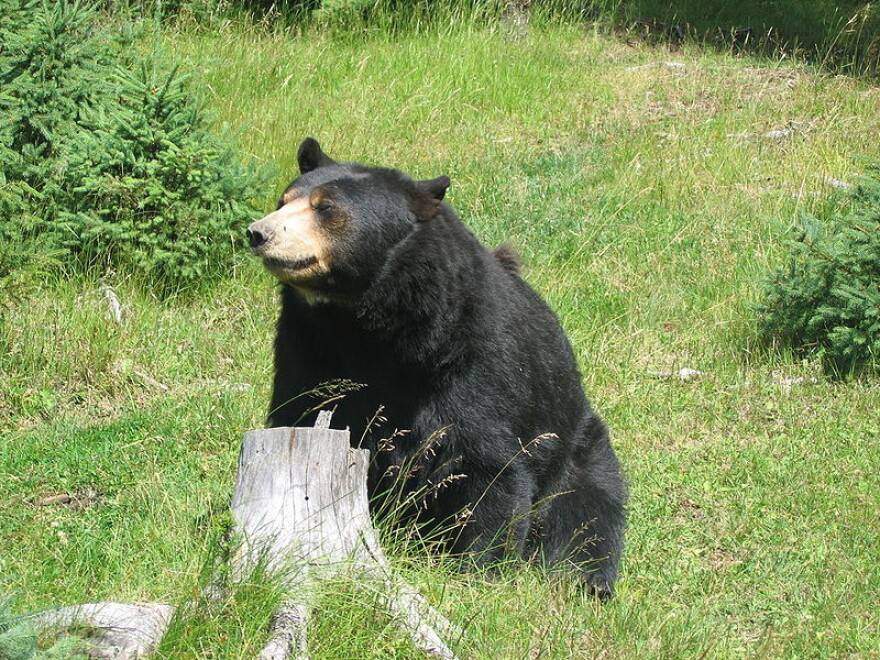Spring bear hunts in Washington are postponed for 2022, following a vote of the Washington Fish and Wildlife Commission in a meeting on Friday.
The Washington Fish and Wildlife Commission suspended the 2022 spring bear hunt season after a 4-4 vote to authorize the controversial hunt. A majority of commissioners needed to approve special permits for the hunt.
Wildlife officials said the limited spring bear hunt protects against damage to timber and other property. In public comments, supporters of the spring bear hunt said they wanted to expand the spring bear season.
However, conservation groups raised alarms over the hunt. At least a dozen groups said the hunts kill bears just as they’ve emerged from hibernation with cubs in tow. In spring, 40% of adult female bears have cubs with them, said Commissioner Fred Koontz, of King County.
The suspended hunt will allow Fish and Wildlife commissioners more time to discuss and study the hunt, said Sophia Ressler, an attorney for the Center for Biological Diversity, which opposed the bear hunts.
“The time for the commissioners to understand what they are permitting with a spring bear hunt is incredibly vital,” Ressler said.
Initially, the Washington Fish and Wildlife Commission was considering changes to the special permit season.
However, conservation groups said special permits should not be issued at all. The groups argued that spring bear hunts are cruel because bears are sluggish after they emerge from hibernation.
Eight states allow for spring bear hunt, including Oregon and Idaho. Idaho also allows approved baiting.
After a public outcry at earlier meetings on the special permit season, the Department of Fish and Wildlife extended the time it accepted further comments.
The department received more than 5,000 comments, said Stephanie Simek, Carnivore, Furbearer, Small Game section manager for Washington Department of Fish and Wildlife.
At today’s meeting, Commissioner Kim Thorburn said Washington’s black bear population is healthy, and the hunt is popular. Each permit had 11 applicants last year, she said.
“Our mandate is to provide opportunity when conservation is not impared,” Thorburn said. “We have lots of information that conservation of bears is not impared by this hunt.”
However, Commissioner Lorna Smith said the number of permit applications is due to the success rate of the hunters.
“The reasons for the success of the hunt are the bears are an easy target,” Smith said.
In addition, Smith said, the bear population models the Fish and Wildlife Department has used in recent years seems to be old fashioned.
“We don’t know exactly what our bear population is because the model, by our own admission, is not that reliable,” Smith said, “and we’ve doubled the harvest limit.”
Simek said the department is using the best available science to study bear populations.
“At this point in time, we’re not using a method that is unfounded or hasn’t been used in the past,” Simek said.
Fish and Wildlife Director Kelly Susewind said while approving the bear hunt might be a hard decision, it's not a complex decision.
He said the professional staff on the ground said these bear hunts do not impair or cause a concern for the bear populations.
Commissioner Molly Linville said a cautionary approach to wildlife management works well when the population is imperiled. However, Linville said, that doesn’t apply to Washington’s black bears.
“I don’t think fear has a role in science in a population that’s stable,” Linville said.
Many people raised concerns whether this vote signaled the commission’s position on hunting, said Barbara Baker, commission vice chair. These concerns are why the commission must be able to clearly defend its positions, she said.
The commission said it would study the spring bear hunt after it approved the 2021 season. However, Baker said, the commission failed in that communication process. The commission began asking questions about the 2022 spring bear hunt too late, she said.
“We did nothing in eight or nine months to alleviate all the confusion,” Baker said.
The commission will vote next fall on whether to allow a spring bear hunt in 2023.


